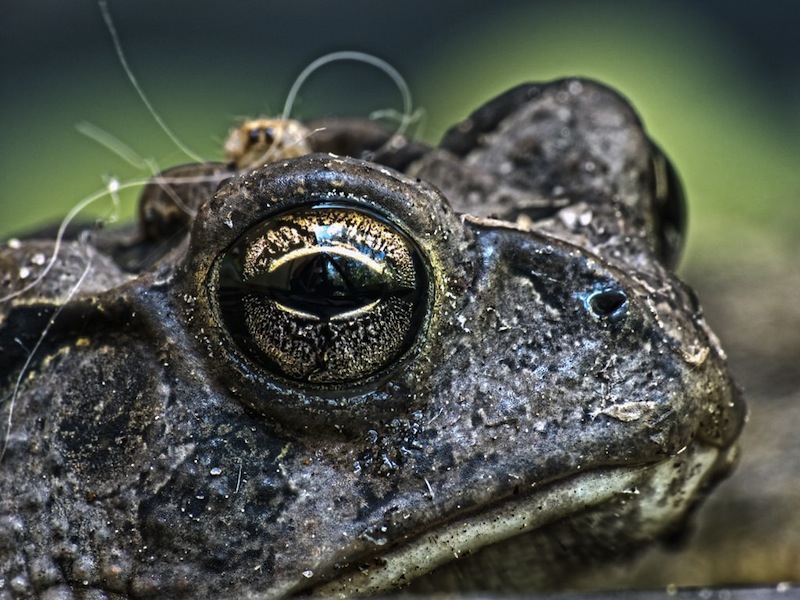Lessons from a Lusty Toad
Joy and Matthew Steem
I haven’t always been partial to George Orwell. But, curmudgeonly, chauvinistic and often prone to hyperbole as his work can be, he has become somewhat of an earthy voice of exhortation for me. True, certain phrases and images like, “if you want a vision of the future, imagine a boot stamping on a human face- forever”from 1984; or, the unjust and deeply troubling shipment of Boxer, the loyal and lovable workhorse, to the glue factory in Animal Farm; or, Gordon Comstock, the nonconformist protagonist from Keep the Aspidistra Flying, who is characterized by sentiments like, “this is the life we live nowadays! It’s not life, it’s stagnation, death-in-life…we’re all corpses. Just rotting upright ”are hardly uplifting. However, to limit our vision of Orwell to Room 101 or vague announcements of “oh, how very Orwellian”is to miss out on something really important.
Perhaps my appreciation for Orwell began sprouting its first buds when I encountered his essay entitled “Thoughts on the Common Toad.” In this short(ish) first-person narrative, he describes his profound pleasure at the discovery of spring’s first amber amphibian: the unassuming toad. He relishes in its voracious appetite and transformation from scrawny to strong and delights in its big chrysoberyl eyes. (I’m not sure I appreciate the comparison of a rather emaciated look being a “spiritual look”in his essay; and, I am certain G.K Chesterton would have most heartily and robustly disagreed with it. Nor do I enjoy his use of the term “sexiness”in reference to a mere rapacious libidinal impulse which characterizes the toad’s attempts at breeding anything and everything he comes in contact with. However, these are small detractors compared to the spiritually significant impact I find in this piece.)
Perhaps I liked that he decided to write on something as banal as the toad because, as he says,“[the toad] never had much of a boost from poets.”More likely though, it is because of his conscious decision —and I think it must often be conscious—to nurture a capacity for delight: “people, so the thought runs, ought to be discontented, and [people mistakenly believe] it is our job to multiply our wants and not simply to increase our enjoyment of the things we have already,” Orwell warns. He adds, “…if we kill all pleasure in the actual process of life, what sort of future are we preparing for ourselves?”Sure, Orwell simply can’t resist the urge to politicize his enjoyment of spring’s miraculous treasures, framing his delight in terms of resistance to the hegemony which is, in his opinion, in perpetual league to stamp out nature-derived pleasure whenever possible. But his message isn’t just political.
His admonition to find beauty in the toad’s gargantuan golden-globe eyes ennobles everyday enchantment with the perceived commonplace. And if, as Wendell Berry believes, “the world was created and approved by love… [;] it subsists, coheres, and endures by love…[; and,] insofar as it is redeemable, it can be redeemed only by love”(The Art of the Commonplace: The Agrarian Essays), I can’t help but think that as children of heaven, part of our privilege is to meaningfully and lovingly delight in the flourishing of a good creation, knowing full well nothing is ever merely commonplace.
